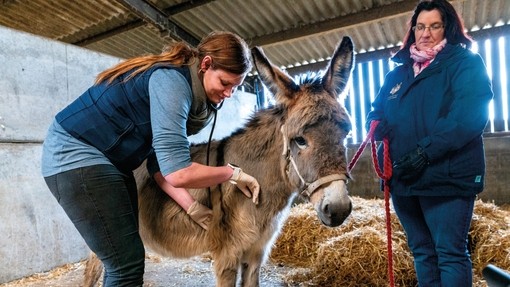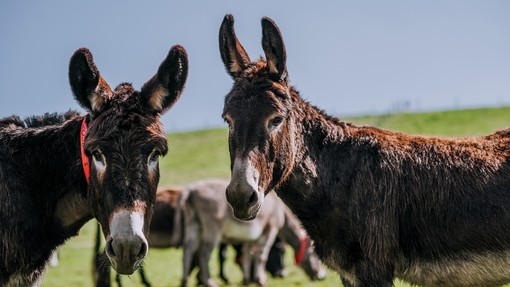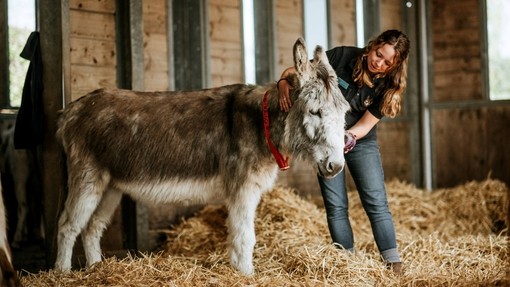What are the signs of infection?
- A recent history of a wound including foot abscesses or a surgical wound, the wound may be so small that it has healed before you start to see any other signs
- A stiff or rigid appearance
- Excessive reaction to noises or touch
- Muscle spasms
- Flared nostrils
- Third eyelid across the eye
- Difficulty breathing
- Lying down or unable to stand.
When should I vaccinate my donkey against tetanus?
Your vet will advise you on when to give the initial course and will help you with booking in boosters.
Foals can be vaccinated from five to six months old. When foals are born they have some protection passed on through their mother’s milk, so it is important that pregnant mares are up to date with their vaccinations before they give birth.
New born foals are given an injection of Tetanus Antitoxin (TAT) to protect them against Tetanus until they are old enough to be vaccinated.
If your donkey gets a wound and you are unsure if their tetanus vaccination is up to date then speak to your vet immediately.
Treatment for tetanus once clinical signs are seen is difficult but there are things your vet can do in the early stages of infection to reduce the risk.




